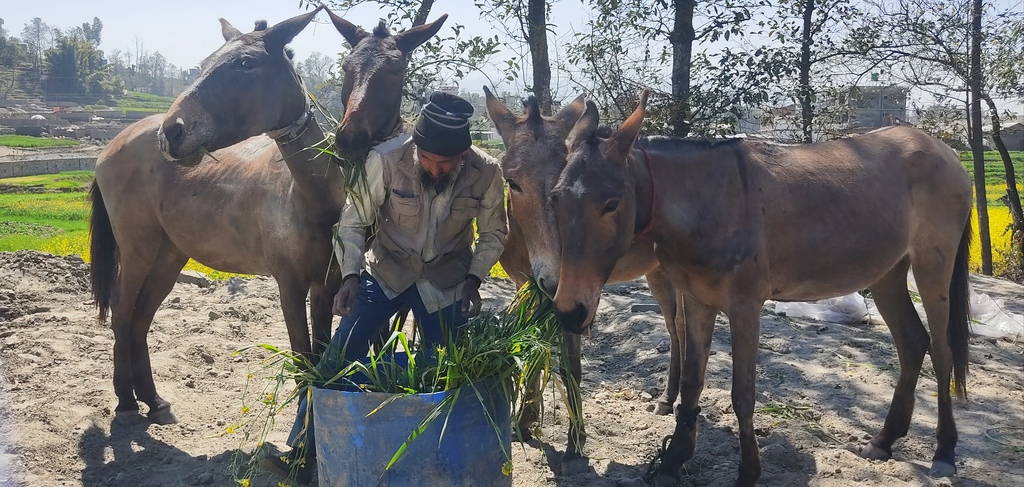Transforming Brick Kiln Animal Welfare; Holistic approach for sustainable change
Transforming Brick Kiln (BK) Animal Welfare; Holistic approach for sustainable change
During the initial years of operation, interventions were more directed towards sensitizing the end users, i.e., equine owners and handlers on animal health and welfare and providing free direct veterinary health care. However, with the changing scenario of working equid welfare, there has been a gradual shift in the paradigm regarding our intervention strategy over the years. Based on the observation and experience of the initial years, various stakeholders and networks were identified as fundamental to achieving sustainable change, and a novel modified approach was formulated that incorporates diversified multilevel stakeholders into the program, i.e., Equine owners/handlers, BK owners, BK association, Local media, LSPs (Private and Governmental), Governmental authority, Policy makers, etc. The interventions were focused on enhancing equine owners’ capacity to undertake basic management practices, capacity building of the LSPs and their mobilization, sensitizing the BK owners, governmental and local-level authorities and policy makers on animal welfare issues and animal welfare legislations and on top of that, educating individual stakeholders on their personal and collective roles and responsibilities pertaining to animal welfare.
Regular learning and sharing meetings, trainings, issue-based sessions, field observations and visits, etc., were used as tools to educate equine owners. Similarly, skill enhancement trainings were conducted for the LSPs, and technical resources (start-up kits) were provided to them. The trained LSPs were linked with equine owners and mobilized in their respective sites. Periodic refresher trainings were conducted to identify the technical and clinical gaps and address them accordingly. Workshops were conducted to sensitize BK owners, governmental officials, local authorities and policy makers on animal welfare legislations and jurisdictions provisioned by the Nepal government. Whereas the accumulated facts and statistics (annual data, contribution of equid sector to national economy, exclusion of equids from planning and policy, legislations, etc.) were used as a vehicle to open discussions with the policy makers.
Since the new approach was exercised, there has been a significant improvement in the physical infrastructures and working environment in the brick kilns; the equine owners adopt better husbandry practices including, housing, nutrition, improved working environment, humane handling of animals, appropriate workload, prompt health care and thus overall improvement in animal welfare aided partly by the technical and financial support of BK owner. Similarly, regarding Veterinary Service Provision, the module has resulted in a proportionate decrease in the direct intervention by the AHTCS vet techs and a gradual increment in the involvement of LSPs without undermining the quality and accessibility of veterinary health services thus suggesting a sustainable change. Equids are included in the government policy; equine-specific medicine stock and vaccines are maintained at the Livestock Service Section, Periodic mass vaccinations and health camps are conducted, seasonal fodder seeds are distributed to equine owners, etc. Besides these, animal welfare legislations, the Animal Welfare Directives 2073, have also been implemented in the BKs that particularly advocate the five freedoms and humane handling of the animals.
The outcomes of the approach have been quite promising so far and the collaborative efforts of the multilevel stakeholders have enabled us to address every facet of the animal welfare thoroughly and effectively.

